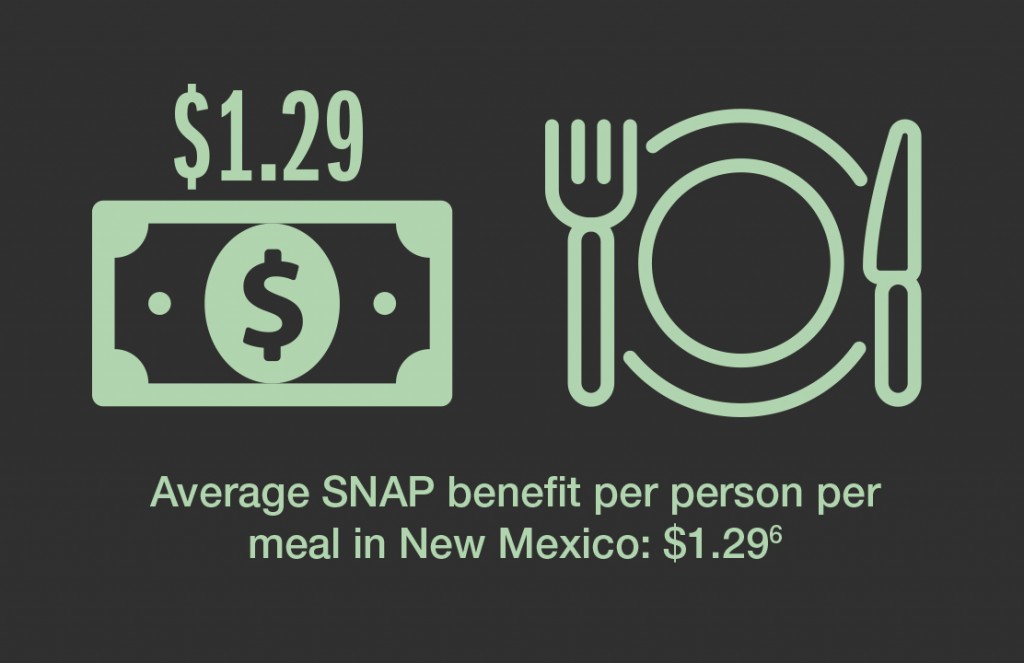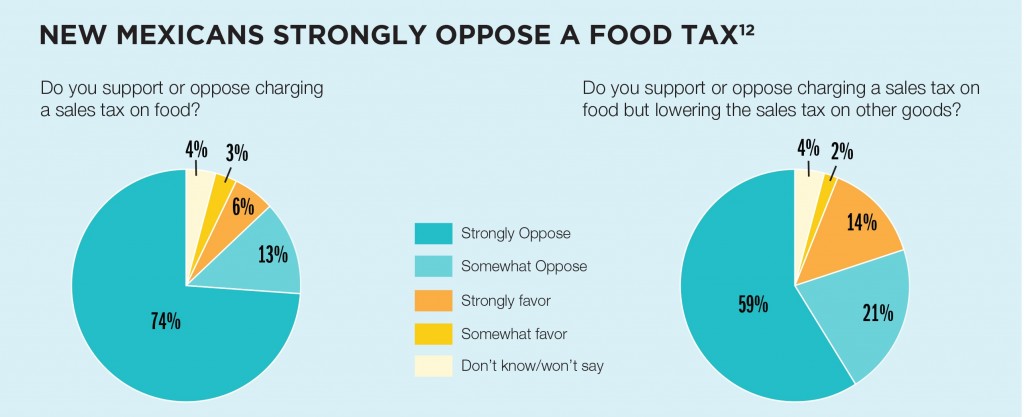
New Mexico has the highest food insecurity rate in the nation
- 26.6% of our children don’t have access to enough nutritious food
Childhood food insecurity is associated with1
- Increased risk of developmental delays and chronic disease
- Forgone medical care
- Behavioral and emotional challenges
- Increased disciplinary actions and lower test scores at school
- Lower educational attainment
- Reduced economic mobility
143,660 New Mexico kids are food insecure
That is roughly equivalent to every student in the Albuquerque, Las Cruces, Santa Fe, and Rio Rancho school districts – combined – not having enough reliable access to a sufficient amount of nutritious food.

Low Wages and Poverty are Largely to Blame for Food Insecurity in New Mexico
SNAP Benefits are Not Enough to Fix Food Insecurity
79% of snap benefits are used up within the first half of the month5

While SNAP helps tens of thousands of New Mexico families put food on the table, the benefits are not intended to replace a family’s total food needs.
SNAP beneficiaries collectively spend hundreds of millions of their own money on food – which will become even more expensive if it is taxed. With the COVID-19 pandemic, New Mexico has seen a surge in families needing food assistance:
- SNAP enrollment increased by more than 10%7
- Food insecurity among all New Mexicans has almost doubled8
Many SNAP beneficiaries work in industries that have kept the state running during the current pandemic: 57% of New Mexico’s SNAP recipients are considered essential workers9
- 47,700 work in the service industry
- 10,000 are construction workers
- 5,800 work for manufacturers
The pandemic and economic downturn have also meant a big decline in state revenue from income and gross receipts taxes. As state policymakers look for new sources of tax revenue, food could be in the cross-hairs.
Despite our high rates of food insecurity and poverty, some lawmakers still want to tax food.
New Mexico Should NOT Tax Food

Food is the most basic of human necessities. New Mexico’s leaders should be fighting hunger, not making it worse by taxing food.
1 “Think Babies” fact sheet, Food and Research Action Center, 2020
2 NM Association of Food Banks Survey, and Map the Meal Gap, Feeding America, 2014
3 Consumer Expenditure Surveys, US Bureau of Labor Statistics, 2018
4 US Census Bureau, American Community Survey Data, 2018
5 “Benefit Redemption Patterns in SNAP,” USDA, 2011
6 “Characteristics of Supplemental Nutrition Assistance Program Households: Fiscal Year 2018,” USDA, Office of Research and Analysis, 2018
7 Monthly Statistical Reports, New Mexico Human Services Department, April, 2020
8 “How Much Has Food Insecurity Risen? Evidence from the Census Household Pulse Survey,” Institute for Policy Research, June 10, 2020
9 Center on Budget and Policy Priorities (CBPP) analysis of US Census Bureau, American Community Survey data, 2017
10 “State Sales Tax Rates and Food and Drug Exemptions,” Federation of Tax Administrators, January 1, 2020
11 “States That Still Impose Sales Taxes on Groceries Should Consider Reducing or Eliminating Them,” CBPP, April 1, 2002
12 Benenson Strategy Group poll of likely New Mexico Voters, Dec. 2018



